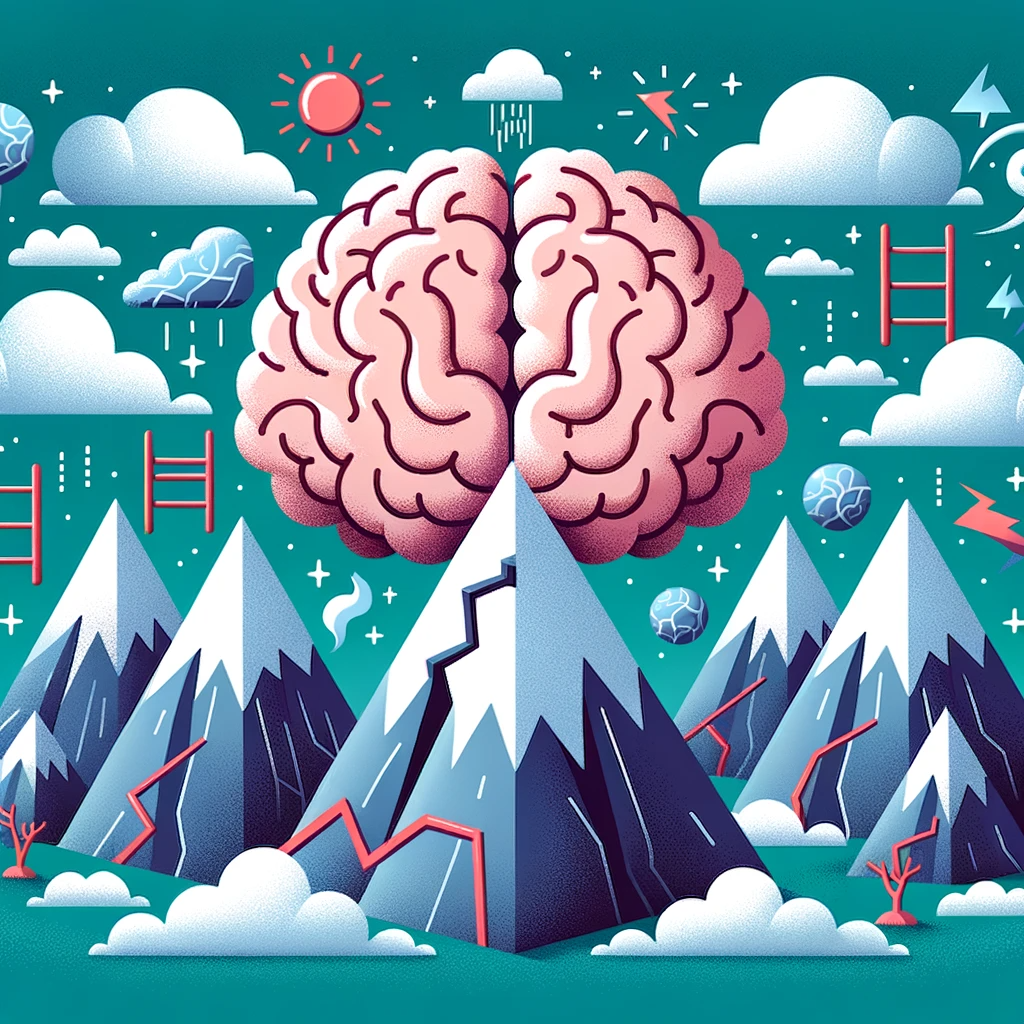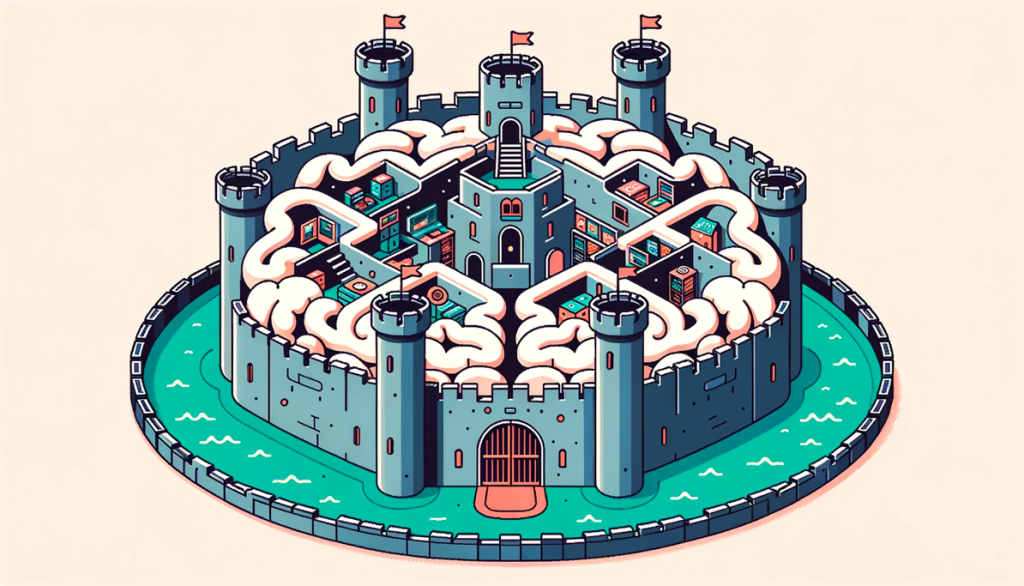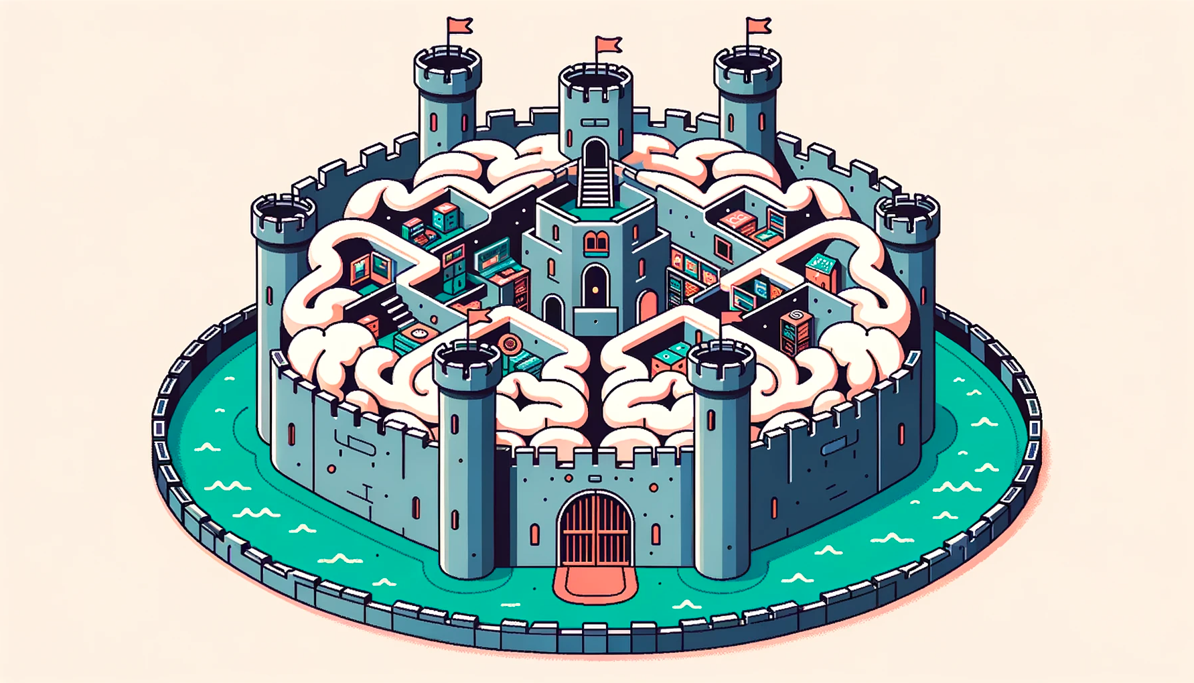Welcome to the definitive guide on mental mastery. This isn’t just another self-help article but a comprehensive roadmap to mastering your mind. If you’re serious about achieving unparalleled success in every aspect of your life, you’re in the right place. Let’s dive in.
Mental Master Quick Overview:
Mental mastery optimizes your mind for success, resilience, and continuous growth. You can unlock unparalleled mental strength and agility by understanding your mind’s architecture, building resilience, cultivating a growth mindset, implementing mental models, and focusing on continuous improvement.

The Importance of Mental Mastery
You might wonder why mental mastery is such a big deal. Well, consider this: your mind is the control center of your life. Whether you’re negotiating a business deal, lifting weights, or navigating relationships, your mental state dictates your performance. A finely tuned mind can be your most potent asset, leading you to outcomes you’ve only dreamed of.
- Decision-Making: A mastered mind makes decisions based on logic and reason, not emotion. This leads to better outcomes in business, relationships, and almost every area of life.
- Resilience: Life is full of setbacks. Mental mastery equips you with the resilience to bounce back from failures, turning them into stepping stones rather than stumbling blocks.
- Focus: In an age of constant distractions, focusing is a superpower. Mental mastery teaches you to tune out the noise and concentrate on what truly matters.

Core Components of Mental Mastery
Understanding mental mastery requires breaking it down into its core components. These building blocks will form the robust architecture of your mastered mind.
Self-Awareness
The first step in mastering your mind is knowing yourself. Self-awareness is the ability to understand your thoughts, emotions, and behaviors. It’s like having a mirror for your mind, reflecting what drives you, what scares you, and what excites you. Without self-awareness, you’re flying blind, making it nearly impossible to navigate the complexities of life effectively.
- Action Step: Spend 10 minutes each day in quiet reflection. Ask yourself what you’re feeling and why. Journaling can be an excellent tool for this.

Emotional Intelligence
Often abbreviated as EQ, emotional intelligence is the capability to recognize and manage your emotions and those of others. High EQ individuals are adept at social interactions, relationship management, and empathetic understanding. In a world obsessed with IQ, EQ is the underdog that often determines who succeeds and who doesn’t.
- Action Step: Practice active listening in your conversations. Try to understand the emotional undertones and respond empathetically.
Cognitive Flexibility
This is the ability to adapt your thinking based on new information. In a rapidly changing world, cognitive flexibility is not just an asset; it’s a necessity. It allows you to solve problems creatively and seize opportunities others might miss.
- Action Step: Challenge your own viewpoints. Engage in debates, read opposing opinions, and be open to changing your mind.
Now that you understand the importance of mental mastery and its core components, you’re ready to delve deeper into each element. Each section will provide you with actionable steps, grounded in proven principles, to help you build a mind of steel.

Understanding Your Mind
The Architecture of the Mind
The human mind is a complex structure, comprising both conscious and subconscious elements. The conscious mind is where active thinking occurs—it’s the part you know. The subconscious mind, on the other hand, is like the backstage crew in a theater production. It handles everything from your memories to your emotions, often without realizing it. Understanding this architecture is crucial for mental mastery because it allows you to tap into your subconscious, harnessing its power to achieve your goals.
- Action Step: Practice mindfulness meditation to become more aware of your thought patterns. This will help you distinguish between conscious thoughts and subconscious influences.
Cognitive Biases and Their Impact
As advanced as it is, your mind comes with certain pre-programmed biases. These cognitive biases can distort your perception of reality, affecting your decisions and judgments. For example, confirmation bias leads you to favor information that confirms your existing beliefs, while neglecting opposing viewpoints. Being aware of these biases is the first step in mitigating their impact.
- Action Step: When you decide, consider if any cognitive biases are at play. Are you ignoring information that contradicts your beliefs? Are you overestimating your abilities due to overconfidence? Self-questioning can help you uncover hidden biases.
Understanding the architecture of your mind and being aware of cognitive biases are foundational steps in your journey toward mental mastery. With this understanding, you can navigate life’s challenges with the clarity most people lack. You’re not just reacting to life; you’re strategically responding to it, and that makes all the difference.
Building Resilience
The Role of Grit
Resilience isn’t just about bouncing back from setbacks; it’s about having the grit to push through challenges, even when the odds are stacked against you. Grit is that indomitable spirit that keeps you moving forward, no matter how tough the journey. It’s the difference between those who give up when faced with obstacles and those who see obstacles as merely problems to be solved.

Stress Management Techniques
Stress is inevitable, but managing it can significantly affect your mental resilience. Poor stress management can lead to burnout, decreased productivity, and health issues. Conversely, stress management can enhance your performance, mental clarity, and overall well-being.
- Action Step: Incorporate stress-reducing activities into your daily routine. This could be as simple as taking a 10-minute walk, practicing deep-breathing exercises, or engaging in a hobby you enjoy. The key is to find what works for you and make it a regular part of your life.
Building resilience through grit and effective stress management is like installing shock absorbers on a car. You’ll still feel the bumps on the road, but they won’t derail your journey. You’ll be equipped to handle life’s ups and downs, making you resilient and virtually unstoppable.
Cultivating a Growth Mindset
The Power of Perspective
Your mindset is the lens through which you view the world. A fixed mindset sees challenges as threats, failures as identity, and effort as fruitless. A growth mindset, however, views challenges as opportunities, failures as lessons, and effort as the path to mastery. The Stoic philosopher Epictetus said, “We cannot choose our external circumstances, but we can always choose how we respond to them.” This encapsulates the essence of a growth mindset.
- Action Step: Whenever you face a challenge, reframe it as an opportunity to grow. Instead of saying, “This is too hard,” say, “This will make me stronger.”
The Stoic Approach to Growth
Stoicism teaches us to focus on what we can control and let go of what we can’t. Marcus Aurelius, another Stoic philosopher, once said, “You have power over your mind—not outside events. Realize this, and you will find strength.” This Stoic principle aligns perfectly with a growth mindset, emphasizing the importance of internal over external circumstances.
- Action Step: Make a list of things that are within your control and those that are not. Focus your energy and efforts on the former, and learn to accept or let go of the latter.
Embracing Failure as a Teacher
Nobody likes to fail, but failure is often the best teacher. Each failure provides valuable data that you can use to improve. As Seneca said, “Difficulties strengthen the mind, as labor does the body.” In a growth mindset, failure is not a dead-end but a detour to a better route.
- Action Step: The next time you fail at something, instead of dwelling on the failure, analyze it. What went wrong? What could you have done differently? Use this information to improve and succeed in your next attempt.
Cultivating a growth mindset is like upgrading your mental software. It enhances your adaptability, resilience, and capacity for success. It’s not just about believing you can grow; it’s about knowing how to grow, and taking the actionable steps to make it happen.

Implementing Mental Models
The Art of Application
Understanding mental models is one thing; applying them is another. The real power of mental models lies in their practical application. They’re not just theoretical constructs but tools for navigating the complexities of life. As the philosopher Confucius said, “To know what you know and what you do not know is true knowledge.”
- Action Step: Identify situations where you can apply your chosen mental models. For example, use the “80/20 Principle” to focus on the most impactful tasks in your work or personal life.
Real-World Testing
The ultimate test of any mental model is its effectiveness in the real world. You need to take your mental models out of the theoretical realm and put them into action. Observe the outcomes and adjust as necessary.
- Action Step: Choose one mental model to apply in a specific situation. Afterward, evaluate its effectiveness. Did it help you make a better decision? Did it simplify a complex problem? Use this feedback to refine your understanding of the model.
Continuous Improvement
The Iterative Process
Mental mastery is not a destination but a journey. It requires continuous improvement, an iterative process where you apply, assess, and adjust. The Japanese concept of “Kaizen,” which means “change for better,” embodies this idea. It’s about small, incremental improvements that add up over time.
- Action Step: At the end of each week, take some time to reflect on what worked and what didn’t. What mental models were effective? What beliefs empowered you? Use this information to make small adjustments for the following week.
Lifelong Learning
The landscape of life is ever-changing, and to navigate it successfully, you must be a lifelong learner. This doesn’t mean you need to be in perpetual “student mode,” rather, you should be open to new experiences, ideas, and models that can enhance your mental toolkit.
- Action Step: Dedicate time to learning something new each month. It could be a book, an online course, or even a new hobby. The goal is to continuously expand your mental models and perspectives.
Implementing mental models and focusing on continuous improvement are the final pieces of the mental mastery puzzle. They ensure that your mental framework is robust and adaptable, capable of evolving with you as you journey through life.
What to Do Next
You’ve laid the groundwork for mental mastery; now it’s time to put it into practice. Start by identifying one area where you’d like to see improvement—career, relationships, or personal development. Apply this guide’s principles and action steps to that specific area. Monitor your progress, adjust your strategies, and don’t hesitate to revisit this guide for a refresher or additional insights.
FAQs
- Is mental mastery the same as high IQ? No, mental mastery is not about raw intelligence but about optimizing your mental processes for success and well-being.
- How long does it take to achieve mental mastery? Mental mastery is a lifelong journey, not a destination. It requires continuous effort and adaptation.
- Can mental models be harmful? If misapplied or misunderstood, mental models can lead to poor decisions. Always test and refine your models.
- Is a growth mindset always better than a fixed mindset? Generally, a growth mindset is more adaptive and beneficial, but there may be specific situations where a fixed mindset is appropriate.
- How can I identify my cognitive biases? Self-awareness and introspection are key. You can also seek feedback from trusted individuals.
- What’s the role of emotions in mental mastery? Emotions are data points that can inform your decisions, but they shouldn’t dictate them.
- Can I achieve mental mastery on my own? While self-effort is crucial, external resources like books, mentors, and courses can accelerate your progress.
- How do I know if I’m making progress? Track your actions, decisions, and outcomes. Look for patterns of improvement or areas for adjustment.
- Is mental mastery applicable to all areas of life? Absolutely, from career and relationships to personal development and well-being.
- What if I fail despite applying these principles? Failure is a stepping stone, not a dead end. Analyze, adjust, and continue your journey toward mental mastery.
The Bottom Line
Mental mastery is not a one-time achievement but a continuous process of growth and adaptation. It’s about understanding the intricacies of your mind, building resilience, adopting empowering beliefs, and implementing effective mental models. By committing to this journey, you’re not just improving your chances of success in any field but elevating your entire quality of life.
